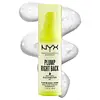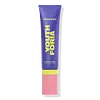What's inside
What's inside
 Key Ingredients
Key Ingredients

 Benefits
Benefits

 Concerns
Concerns

 Ingredients Side-by-side
Ingredients Side-by-side

Water
Skin ConditioningGlycerin
HumectantPEG-150 Distearate
EmulsifyingButylene Glycol
HumectantPvp
Emulsion StabilisingOpuntia Ficus-Indica Stem Extract
Skin ConditioningPotassium PCA
HumectantCarbomer
Emulsion StabilisingSodium Hyaluronate
HumectantTromethamine
BufferingMagnesium PCA
HumectantHydroxypropyltrimonium Hyaluronate
Caprylyl Glycol
EmollientTrisodium Ethylenediamine Disuccinate
Xanthan Gum
EmulsifyingPanthenol
Skin ConditioningEthylhexylglycerin
Skin ConditioningTocopherol
AntioxidantAscorbyl Palmitate
AntioxidantPotassium Sorbate
PreservativePhenoxyethanol
PreservativeParfum
MaskingLimonene
PerfumingBenzyl Alcohol
PerfumingBenzyl Salicylate
PerfumingWater, Glycerin, PEG-150 Distearate, Butylene Glycol, Pvp, Opuntia Ficus-Indica Stem Extract, Potassium PCA, Carbomer, Sodium Hyaluronate, Tromethamine, Magnesium PCA, Hydroxypropyltrimonium Hyaluronate, Caprylyl Glycol, Trisodium Ethylenediamine Disuccinate, Xanthan Gum, Panthenol, Ethylhexylglycerin, Tocopherol, Ascorbyl Palmitate, Potassium Sorbate, Phenoxyethanol, Parfum, Limonene, Benzyl Alcohol, Benzyl Salicylate
Water
Skin ConditioningIsoamyl Laurate
EmollientCoco-Caprylate/Caprate
EmollientTriheptanoin
Skin ConditioningPropanediol
SolventC9-12 Alkane
SolventDilinoleic Acid/Butanediol Copolymer
Polyglyceryl-4 Diisostearate/Polyhydroxystearate/Sebacate
EmulsifyingPolyglyceryl-4 Isostearate
EmulsifyingMaltodextrin
AbsorbentDisteardimonium Hectorite
StabilisingCaprylic/Capric Glycerides
EmollientGlycerin
HumectantCapsicum Annuum Fruit Extract
AntimicrobialGlyceryl Caprylate
EmollientCapparis Spinosa Fruit Extract
Skin ConditioningOlea Europaea Leaf Extract
PerfumingOpuntia Ficus-Indica Stem Extract
Skin ConditioningCastor Oil/Ipdi Copolymer
Sodium Benzoate
MaskingTin Oxide
AbrasiveCitric Acid
BufferingSodium Salicylate
PreservativeButylene Glycol
HumectantXanthan Gum
EmulsifyingMenthol
MaskingAloe Barbadensis Leaf Extract
EmollientMelaleuca Alternifolia Leaf Extract
PerfumingPyrus Malus Fruit Extract
Skin ConditioningPinus Densiflora Leaf Extract
AntimicrobialEucalyptus Globulus Leaf Extract
PerfumingVaccinium Myrtillus Fruit Extract
Skin ConditioningSalix Alba Flower Extract
Skin ConditioningMorus Alba Fruit Extract
AntioxidantArnica Montana Flower Extract
MaskingCucumis Melo Fruit Extract
Skin ConditioningFicus Carica Fruit Extract
HumectantPhaseolus Angularis Seed Extract
AntioxidantScutellaria Baicalensis Root Extract
AstringentCamellia Sinensis Leaf Extract
AntimicrobialCurcuma Longa Root Extract
MaskingMica
Cosmetic ColorantCI 77891
Cosmetic ColorantWater, Isoamyl Laurate, Coco-Caprylate/Caprate, Triheptanoin, Propanediol, C9-12 Alkane, Dilinoleic Acid/Butanediol Copolymer, Polyglyceryl-4 Diisostearate/Polyhydroxystearate/Sebacate, Polyglyceryl-4 Isostearate, Maltodextrin, Disteardimonium Hectorite, Caprylic/Capric Glycerides, Glycerin, Capsicum Annuum Fruit Extract, Glyceryl Caprylate, Capparis Spinosa Fruit Extract, Olea Europaea Leaf Extract, Opuntia Ficus-Indica Stem Extract, Castor Oil/Ipdi Copolymer, Sodium Benzoate, Tin Oxide, Citric Acid, Sodium Salicylate, Butylene Glycol, Xanthan Gum, Menthol, Aloe Barbadensis Leaf Extract, Melaleuca Alternifolia Leaf Extract, Pyrus Malus Fruit Extract, Pinus Densiflora Leaf Extract, Eucalyptus Globulus Leaf Extract, Vaccinium Myrtillus Fruit Extract, Salix Alba Flower Extract, Morus Alba Fruit Extract, Arnica Montana Flower Extract, Cucumis Melo Fruit Extract, Ficus Carica Fruit Extract, Phaseolus Angularis Seed Extract, Scutellaria Baicalensis Root Extract, Camellia Sinensis Leaf Extract, Curcuma Longa Root Extract, Mica, CI 77891
Alternatives
Ingredients Explained
These ingredients are found in both products.
Ingredients higher up in an ingredient list are typically present in a larger amount.
Butylene Glycol (or BG) is used within cosmetic products for a few different reasons:
Overall, Butylene Glycol is a safe and well-rounded ingredient that works well with other ingredients.
Though this ingredient works well with most skin types, some people with sensitive skin may experience a reaction such as allergic rashes, closed comedones, or itchiness.
Learn more about Butylene GlycolGlycerin is already naturally found in your skin. It helps moisturize and protect your skin.
A study from 2016 found glycerin to be more effective as a humectant than AHAs and hyaluronic acid.
As a humectant, it helps the skin stay hydrated by pulling moisture to your skin. The low molecular weight of glycerin allows it to pull moisture into the deeper layers of your skin.
Hydrated skin improves your skin barrier; Your skin barrier helps protect against irritants and bacteria.
Glycerin has also been found to have antimicrobial and antiviral properties. Due to these properties, glycerin is often used in wound and burn treatments.
In cosmetics, glycerin is usually derived from plants such as soybean or palm. However, it can also be sourced from animals, such as tallow or animal fat.
This ingredient is organic, colorless, odorless, and non-toxic.
Glycerin is the name for this ingredient in American English. British English uses Glycerol/Glycerine.
Learn more about GlycerinThis ingredient comes from the stem of the Prickly Pear cactus. The stem is rich in polyphenols, a potent source of antioxidants. It is anti-aging and soothing properties.
Prickly Pear stem is made up mostly of water (85%). The rest is composed of skin nourishing compounds: protein, fiber, fatty acid, simple sugars, Vitamin C, and some minerals.
Polyphenols help mitigate the effects of aging. Studies show polyphenols protect the skin from oxidative stress, UV-induced damage, and inflammation.
Prickly pear is often compared to Aloe.
Learn more about Opuntia Ficus-Indica Stem ExtractWater. It's the most common cosmetic ingredient of all. You'll usually see it at the top of ingredient lists, meaning that it makes up the largest part of the product.
So why is it so popular? Water most often acts as a solvent - this means that it helps dissolve other ingredients into the formulation.
You'll also recognize water as that liquid we all need to stay alive. If you see this, drink a glass of water. Stay hydrated!
Learn more about WaterXanthan gum is used as a stabilizer and thickener within cosmetic products. It helps give products a sticky, thick feeling - preventing them from being too runny.
On the technical side of things, xanthan gum is a polysaccharide - a combination consisting of multiple sugar molecules bonded together.
Xanthan gum is a pretty common and great ingredient. It is a natural, non-toxic, non-irritating ingredient that is also commonly used in food products.
Learn more about Xanthan Gum